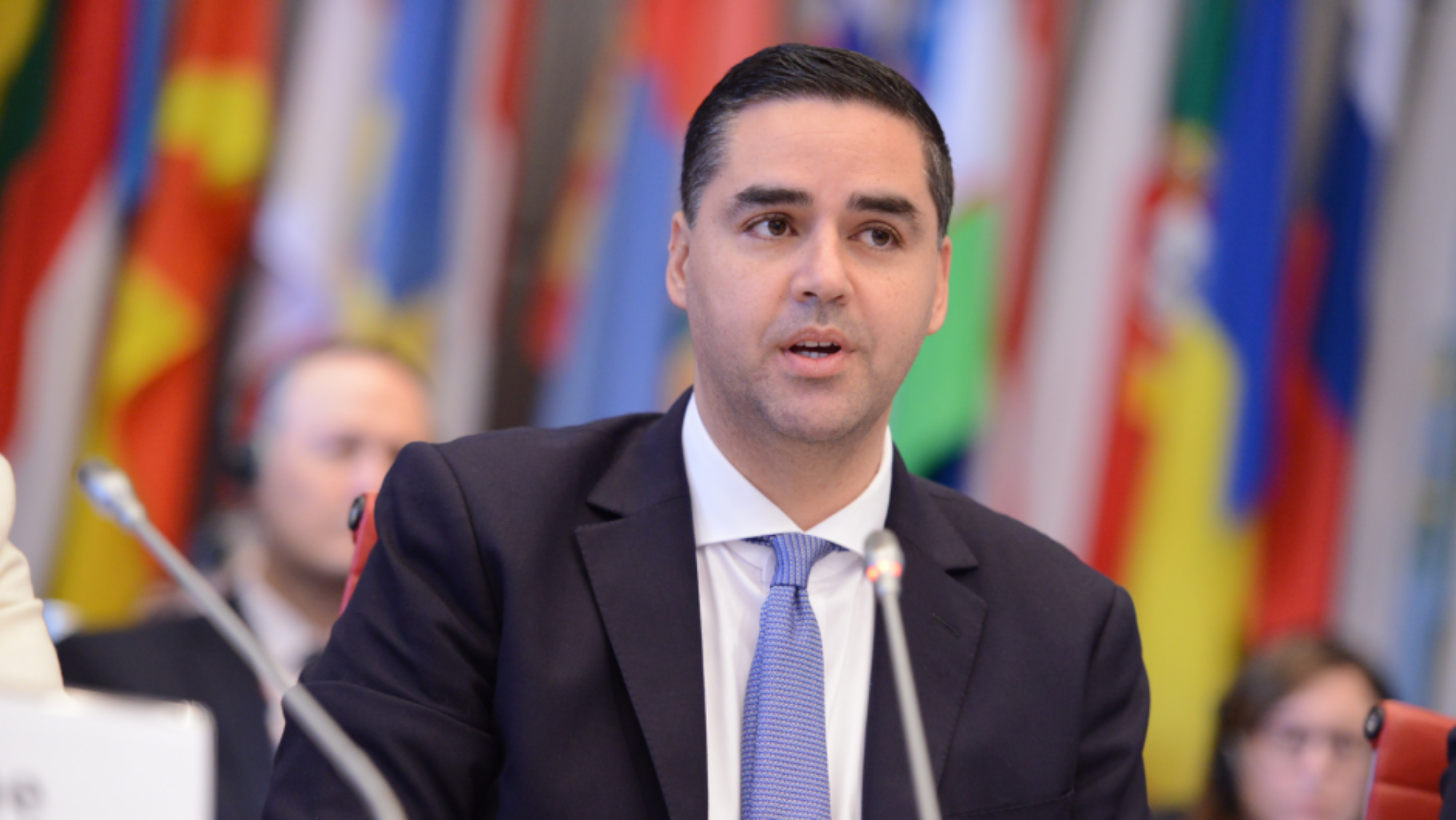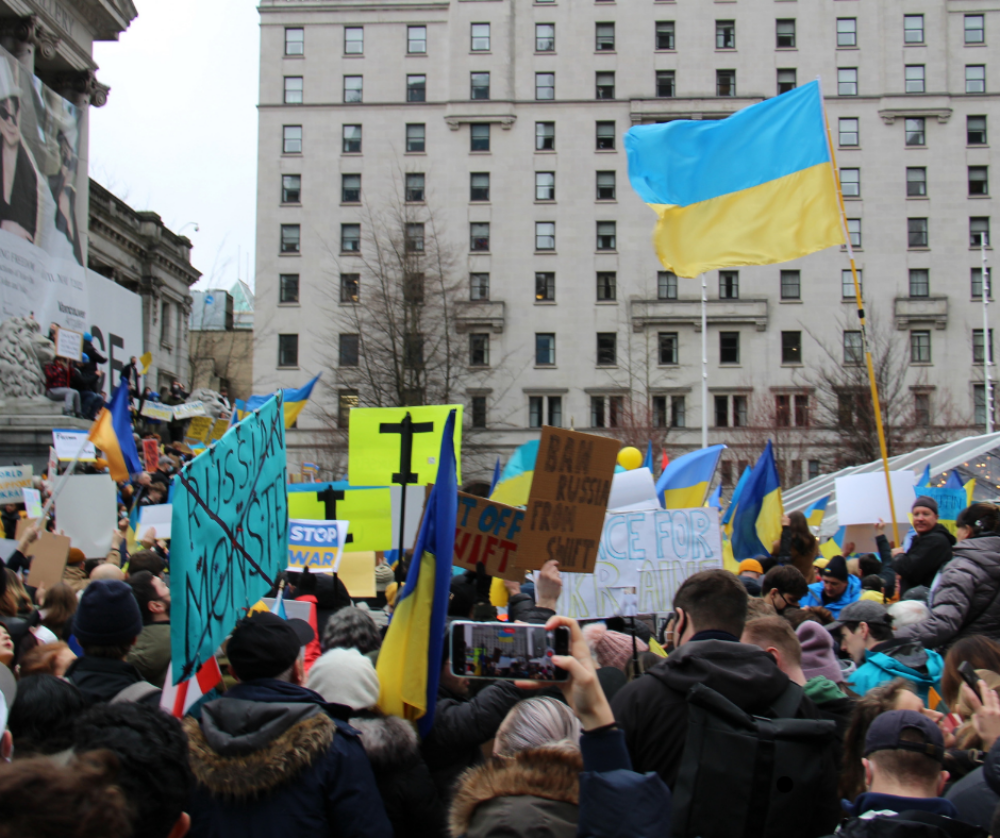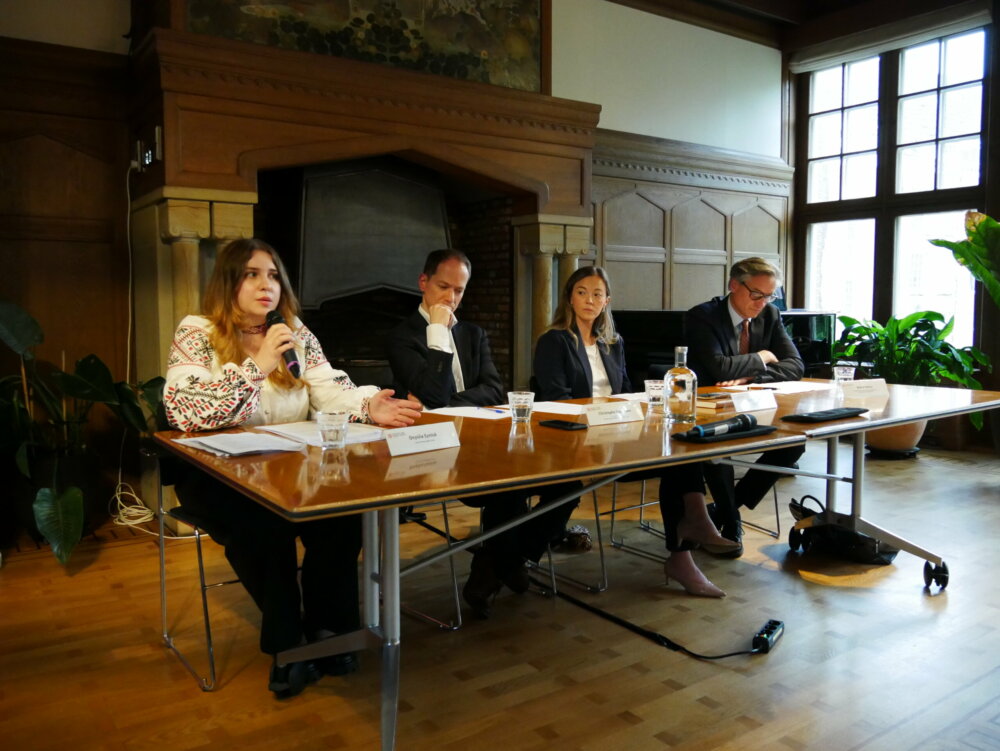OSCE/Micky Kroell

Foreign Minister of Malta Ian Borg promises to ‘do whatever it takes’ to keep the OSCE ‘alive and functioning’ as he outlines 2024 OSCE priorities
Maltese Foreign Minister Ian Borg presented the program and priorities of the 2024 OSCE Chairpersonship of Malta in Vienna on Thursday.
“The trust bestowed upon us by all participating states during these challenging times is a responsibility we embrace with profound commitment, humility and pride — fully mindful of the critical juncture at which we assume this role,” Borg told OSCE diplomats from the 57 participating states.
Malta, which is assuming the OSCE Chairpersonship for the first time in its history, accepted the responsibility of helming the OSCE on short notice after Russia blocked Estonia’s candidacy for the role and other options failed to reach the necessary consensus last year.
Under normal circumstances, the country chairing the OSCE is agreed upon well in advance, which ideally provides the incoming Chair two years to set aside financial and human resources and prepare for the complicated task of leading the world’s largest regional security body. This preparation time is especially important for smaller states such as Malta.
Given the unprecedented circumstances of Malta’s appointment and the fact that it had only a few weeks to prepare, several OSCE states have agreed to support Malta’s OSCE Chairpersonship with logistical, human and indirect financial resources, OSCE diplomats say.
Malta also has a seat on the UN Security Council during the 2023-24 term.
Borg to head to Kyiv
Foreign Minister Borg said it was Malta’s central priority to keep “Russia’s illegal war of aggression against Ukraine” at the top of the OSCE agenda.
“I and the Maltese Chairpersonship will continue to demand Russia’s full, unconditional and immediate withdrawal from the entire territory of Ukraine within its internationally recognized borders,” he said, while condemning the “intensified attacks” of the last weeks.
“What we do for peace today will help determine whether we live in war tomorrow,” he said.
In this context, Borg announced that the first visit he will make in his new capacity as OSCE Chair-in-Office will be to Kyiv next week to underscore Malta’s strong support for Ukraine.
The OSCE currently runs a Support Program for Ukraine that is exclusively financed via extra-budgetary resources.
The Maltese Foreign Minister also promised to keep a focus on the South Caucasus and on Eastern Europe and on facilitating dialogue and resolving the protracted conflicts in the entire OSCE region.
‘We are not out of the woods’
Borg emphasized that he would “do whatever it takes” to keep the OSCE “alive and functioning” and find solutions for the OSCE’s ongoing leadership crisis.
“The OSCE Ministerial Council in Skopje provided a glimmer of hope, but we are not out of the woods,” he said.
In Skopje last year, the OSCE Ministerial Council, under the Chairpersonship of North Macedonia, agreed to extend the mandates of the top four OSCE leadership posts, but for only nine months instead of the customary three-year term.
This means that OSCE Secretary General Helga Schmid, OSCE High Commissioner on National Minorities Kairat Abdrakhmanov, OSCE Representative on Freedom of the Media Teresa Ribeiro and Director of the OSCE Office for Democratic Institutions and Human Rights Matteo Mecacci will be able to continue their work only until Sept. 3.
Without a long-term solution in place, Malta will therefore have to invest time and energy into resolving the matter — a complicated task given the enormous rift between Russia and the West, which will likely make it very difficult for the organization to agree by consensus on new candidates to fill the posts after the respective mandates expire this autumn.
In addition, Malta will prioritize forging an agreement on the OSCE budget and reaching consensus on a country to chair the organization in 2026, Borg said. (Finland will chair the OSCE in 2025.)
“No organization can function without a budget and leadership,” he said. “We count on the collaboration of all participating states in demonstrating necessary political will to finally give this organization the foundations it needs for a secure and resilient future.”
Apart from those main priorities, Borg said Malta will also focus on implementing gender mainstreaming initiatives, giving a voice to youth and improving the safety of female journalists during its tenure.
Release of three OSCE staff members a ‘top priority’
During the press conference following the Permanent Council meeting, Borg repeated his call for the release of the three staff members of the former OSCE Special Monitoring Mission to Ukraine (OSCE SMM) who have been in detention in Donetsk and Luhansk since April 2022.
Helga Maria Schmid, the OSCE Secretary General, said their release remained “a top priority.” She expressed concern about their deteriorating health and said she was in frequent contact with their families.
The OSCE evacuated its presence of 689 international staff members, who had been seconded to the OSCE SMM by OSCE participating states, from Ukraine after Russia’s invasion. However, many local Ukrainian OSCE staff members — who typically held posts as translators, assistants, security advisers and drivers — remained in the country.
In April 2022, prior to the formal closure of the OSCE SMM, Russian proxies detained several local OSCE staff members and outlawed the mission. Three remain in prison to this day: Dmitry Shabanov, Maxim Petrov and Vadim Holda.



Comments
* Your email address will not be published